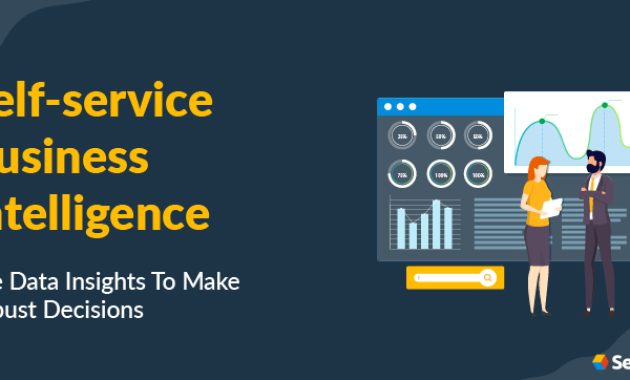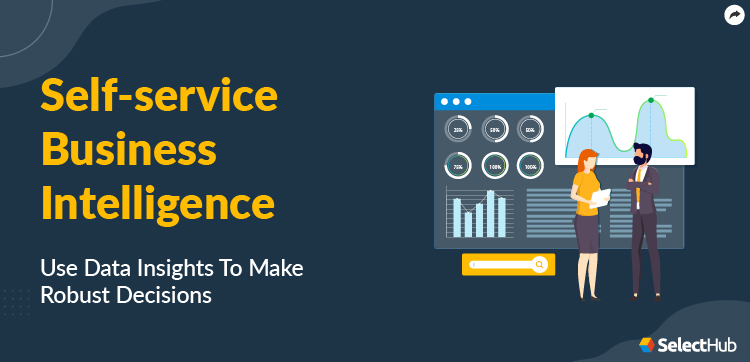
Unlocking Lean Strategies: The Power of Self-Service Business Intelligence Software
In today’s fast-paced business environment, organizations are constantly seeking ways to optimize operations, reduce waste, and improve efficiency. This pursuit of operational excellence often leads businesses to adopt lean strategies. A crucial component of successful lean implementation is the ability to make data-driven decisions quickly and effectively. This is where self-service business intelligence (BI) software becomes an invaluable asset.
This article delves into the world of self-service business intelligence software, exploring its role in supporting lean strategies. We’ll examine how this powerful technology empowers businesses to gain deeper insights, make smarter decisions, and drive significant improvements across their operations. We will also explore how the software helps companies become more agile and responsive to changing market demands.
Understanding Lean Strategies
Lean strategies are a set of principles and practices aimed at maximizing customer value while minimizing waste. The core tenets of lean, originating from the Toyota Production System, focus on continuous improvement (kaizen), respect for people, and the elimination of the seven wastes (TIMWOOD): Transportation, Inventory, Motion, Waiting, Overproduction, Over-processing, and Defects.
Implementing lean requires a shift in mindset and a commitment to continuous improvement. It involves identifying and eliminating inefficiencies, streamlining processes, and empowering employees to contribute to optimization efforts. This is an organization-wide endeavor.
The Role of Data in Lean Implementation
Data is the lifeblood of any successful lean initiative. It provides the evidence needed to identify waste, measure the impact of improvements, and track progress toward goals. Without reliable data, it is impossible to make informed decisions and effectively implement lean strategies. The process of collecting, analyzing, and interpreting data is key.
Traditional business intelligence solutions often require specialized skills and can be time-consuming. The need for IT professionals to create reports or dashboards often creates a bottleneck. This can slow down decision-making and hinder the agility required for effective lean implementation. That’s where self-service business intelligence software comes in.
Introducing Self-Service Business Intelligence Software
Self-service business intelligence software empowers business users with the tools and capabilities they need to analyze data and generate insights without relying on IT or data science experts. These tools typically offer intuitive interfaces, drag-and-drop functionality, and pre-built visualizations, making it easy for users to explore data, create reports, and build dashboards. This is a great tool for everyone.
Key features of self-service BI software often include:
- Data integration capabilities, enabling users to connect to various data sources.
- Data preparation tools for cleaning, transforming, and shaping data.
- Interactive dashboards and visualizations for exploring data and identifying trends.
- Reporting and analytics features for generating insights and sharing findings.
- Collaboration features for sharing dashboards and insights with others.
How Self-Service BI Supports Lean Strategies
Self-service business intelligence software directly supports lean strategies by providing the data and insights needed to drive continuous improvement. Here’s how:
Identifying and Eliminating Waste
By analyzing data from various sources, such as production processes, supply chains, and customer interactions, businesses can identify areas of waste. For instance, the software can help identify bottlenecks in production, excess inventory, or inefficient workflows. This allows for targeted improvements.
Measuring Performance and Tracking Progress
Self-service BI software allows businesses to create dashboards and reports that track key performance indicators (KPIs) related to lean initiatives. These KPIs might include cycle times, defect rates, inventory turnover, or customer satisfaction. This provides a clear view of progress and allows for adjustments.
Empowering Employees
Self-service BI software empowers employees at all levels to access and analyze data relevant to their roles. This allows them to identify opportunities for improvement and contribute to lean initiatives. This fosters a culture of data-driven decision making throughout the organization.
Facilitating Data-Driven Decision Making
By providing easy access to data and insights, self-service BI software enables businesses to make data-driven decisions quickly and effectively. This is crucial for responding to changing market conditions and continuously improving operations. This leads to more efficient decision-making.
Supporting Continuous Improvement (Kaizen)
Self-service BI software facilitates the continuous improvement cycle. By providing data and insights, it helps businesses identify areas for improvement, implement changes, measure the impact of those changes, and then refine their approach. This iterative process is at the heart of lean.
Choosing the Right Self-Service BI Software
Selecting the right self-service business intelligence software is crucial for successful lean implementation. Consider the following factors:
- Ease of Use: The software should have an intuitive interface and drag-and-drop functionality. This ensures that business users can easily create reports and dashboards.
- Data Integration Capabilities: The software should be able to connect to a variety of data sources, including databases, spreadsheets, and cloud services.
- Data Visualization Features: The software should offer a wide range of visualization options, such as charts, graphs, and maps. This enables users to easily explore data and identify trends.
- Reporting and Analytics Features: The software should provide robust reporting and analytics capabilities, including the ability to create custom reports and perform advanced analysis.
- Collaboration Features: The software should facilitate collaboration, allowing users to share dashboards and insights with others.
- Scalability: The software should be able to scale to meet the needs of your business as it grows.
- Cost: Consider the total cost of ownership, including software licensing, implementation, and training.
Real-World Examples: Self-Service BI in Action
Many companies across various industries are successfully leveraging self-service business intelligence software to support their lean strategies. Here are a few examples:
- Manufacturing: Manufacturers use self-service BI to track production efficiency, identify bottlenecks, and reduce waste in their processes. They use the software to monitor cycle times, defect rates, and inventory levels.
- Healthcare: Healthcare providers use self-service BI to analyze patient data, identify areas for improvement in patient care, and optimize resource allocation. For example, they use the software to track readmission rates, reduce wait times, and improve patient satisfaction.
- Retail: Retailers use self-service BI to analyze sales data, optimize inventory levels, and improve customer service. They use the software to identify sales trends, manage product assortments, and personalize the customer experience.
- Supply Chain: Companies use self-service BI to track supplier performance, monitor inventory levels, and optimize logistics. They use the software to identify potential disruptions, reduce shipping costs, and improve delivery times.
The Future of Self-Service BI and Lean
The future of self-service business intelligence software and lean strategies is promising. As technology continues to evolve, we can expect to see even more powerful and user-friendly BI tools emerge. These tools will further enhance the ability of businesses to implement lean strategies and achieve operational excellence.
Key trends to watch include:
- Artificial Intelligence (AI) and Machine Learning (ML): AI and ML are being integrated into self-service BI software to automate data analysis, provide predictive insights, and recommend actions.
- Cloud-Based BI: Cloud-based BI solutions are becoming increasingly popular, offering greater scalability, flexibility, and cost-effectiveness.
- Mobile BI: Mobile BI allows users to access data and insights on the go, enabling faster decision-making.
The combination of these trends will empower businesses to become even more data-driven and agile. This is critical for success in today’s dynamic business environment.
Conclusion
Self-service business intelligence software is a powerful tool for businesses seeking to implement and optimize lean strategies. By providing easy access to data and insights, it empowers employees, facilitates data-driven decision making, and supports continuous improvement. As businesses increasingly embrace lean principles, the demand for self-service BI will continue to grow, driving further innovation and creating even greater opportunities for operational excellence. [See also: Benefits of Business Intelligence for Decision Making] The advantages are clear.
By leveraging the capabilities of self-service business intelligence software, organizations can unlock the full potential of their data and drive significant improvements across their operations. This will lead to increased efficiency, reduced waste, and ultimately, greater profitability. This helps companies stay competitive.

